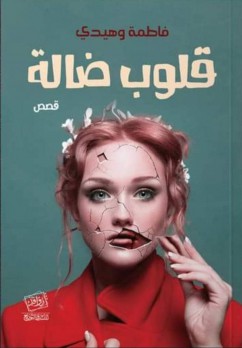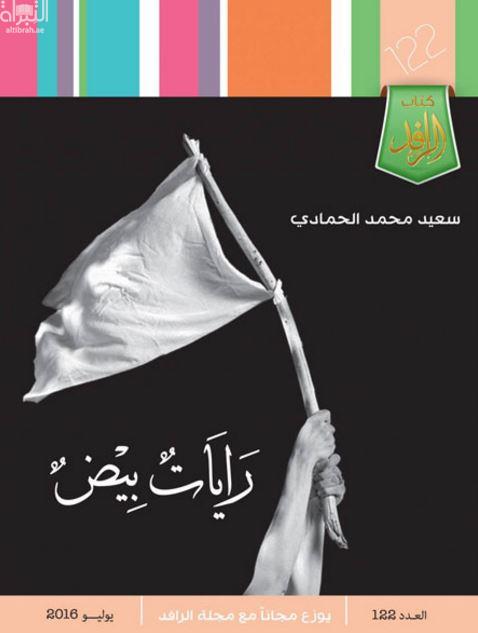The Ten Nights
A bottle filled with oil, another with gas, and a hundred loaves of bread, they awaited their arrival every morning with bated breath. She sat on a stone in front of the frying pan and the gas burner, which she kept with her every day, under the watchful eye of Uncle Mohammed, the building’s janitor next to the Real Estate Department. She received around three sandwiches each day. She opened the box that contained a bag of potato fingers she prepared early at the break of dawn, along with a large plastic container tightly sealed, holding small pieces of tomatoes mixed with vinegar, cumin, salt, and crushed garlic. She started fulfilling the orders of those who came to her, preparing the fried potato sandwiches.
Her customers were not limited to the employees of the Real Estate Department; the fame of Hamdiya’s sandwiches reached even the regular visitors of the Real Estate Department, including lawyers, brokers, and those with vested interests. Just before the call to noon prayer, she would have completed her daily task. She would take her son and they would return home after spending time sitting beside her. When boredom overcame her son, he would watch the path of an ant as it walked until it reached the bread crumbs scattered near him. He would continue to watch it until his head collided with his mother’s thigh or her foot, and she would nudge him to move away slightly, so the hot oil pan wouldn’t spill on him.
On their way back, they passed by the vegetable market to pick up the necessary potatoes and tomatoes for the next day. Zakia greeted her at the room’s door with her daily complaints. As usual, Hamdiya asked her to take some time to rest, and they would sit together in front of the house where they used to sit during the afternoon hours, spending the time in conversation and sipping tea, which Zakia specially prepared for Hamdiya, her neighbor who trusted her with her secrets and often sought her advice in matters of life.
Zakia’s life was not filled with many things; since her marriage to Assayed. and as a 17-year-old daughter, her life has been limited to preparing food and cleaning the room where she lives with her husband on the roof of an old house. They share the bathroom with her neighbor who lives in the adjacent room with her son, Hossam.
Despite the constant quarrels between Hamdiya and her husband, due to his occupation of the bathroom every morning for a long time, causing her to feel delayed and fearful of not making it to work before the employees entered every morning, she loved Zakia and treated her with motherly affection. Zakia would offer advice when she noticed the hint of frustration in Hamdiya’s complaints about her husband:
– “Oh dear, a man’s shadow is better than wall’s shadow. Take care of your husband; he loves you.”
– “Don’t you know what he does to me every night?”
– “What’s wrong with him? He’s your husband!”
– “But if he treated me kindly, it would be different.”
– “Your husband, after all, knows best.”
– “What do you know? These things are all wrong. Aren’t you also tired of his actions?”
Hamdiya’s voice trembled as she asked her:
– “And me, what about me?”
– “Don’t you fight with him every morning because of the bathroom?”
Hamdiya shifted the conversation, reproaching her:
– “Besides, didn’t I tell you a million times to stop calling me Warda? It’s better if someone listens to you.”
– “What’s wrong with Warda? I wish my name were Warda or Shadia. Isn’t it better than Zakia?”
– “I told you a million times, the name Warda was buried with Haj Hamdi, Abu Hossam’s father. I named myself Hamdiya because I stand in the middle of the men every day. I have to be a man, dear, or they’ll devour me.”
– “You’re worth a million men, Warda.”
– “Am I? Look at the girl!”
They both burst into laughter and then suddenly realized that Hamdam, Zakia’s son, was not nearby. They hurriedly began searching the neighborhood for him.
Hamdiya continued to sell potato sandwiches and raise her son, Hossam, who had finally earned his middle school certificate after a series of setbacks and struggles. Meanwhile, Zakia persisted in her complaints about her husband, especially since they had not been blessed with a child despite all these years.
Assayed was a construction worker, and Hamdiya requested that he take Hossam with him, saying:
– “He should learn a trade that can benefit him instead of just standing on street corners. I’ll be at ease with him by your side.”
– “It’s up to you, Mrs. Hamdiya.”
Days passed. Zakia’s complaints never ceased, and Hamdiya’s perseverance continued. She felt that old age had begun to leave its mark on her face, noticing fine lines on her forehead and under her eyes. With the scattered white hairs and the start of her body sagging, she grew tired of listening to Zakia. She regretted refusing marriage proposals that had poured in after her husband, the elderly sheikh, had passed away, leaving her with his seed but no child, disappearing suddenly before she could give birth.
She could no longer tolerate Zakia’s stories, especially when she felt that Zakia intentionally brought up the same stories about her husband’s desire to be intimate with her every night without her consent, withholding and spoiling her. Zakia’s tales had become disturbing to her and disrupted her sleep every night. Zakia’s persistence, pursuit, and amazement at her distance and lack of interest in her company had increased.
Zakia succeeds in cornering her one night and compels her to sit with her and have tea, or so it seemed. When the usual conversation begins, Hamdiya inquires:
– “How could Assayed sleep while leaving you annoying me?”
– “The sleep of the oppressor is a form of worship.”
– “Whoever ruled over his wealth would never be unjust?”
– “Am I his wealth, O Warda!”
-“You’re his wealth and his halal as well.”
Moments of silence fill the space between them. During these moments, an idea crosses Hamdiya’s mind, and she asks for permission to go to bed.
The next morning, after finishing her work, she heads to the pharmacy on their street. The moment she enters, Dr. Hanna, who had attempted to harass her many years ago, starts to flirt with her. As a result, she had stopped visiting his pharmacy, even when Hossam was ill.
– “I need a sleeping pill, Doctor.”
– “A sleeping pill? Who chased sleep away from your eyes, sweetheart?”
– “Anxiety! Do you have one, or should I go elsewhere?”
– “Of course, I have one, but it’s a strip of ten pills, nothing else.”
Hamdiya takes the sleeping pill and hurries to her room, hiding it among her clothes. She bumps into Zakia, who tries to start a conversation with her, but Hamdiya uses her recent headaches as an excuse and withdraws to her room.
She spends a long time in front of her mirror, recalling Dr. Hanna’s words and Zakia’s stories. She feels that her body has turned into a boiler.
Hossam returns home exhausted after sunset. Hamdiya prepares dinner as usual, sitting beside him as he sips the cup of tea she made for him this evening, which is a rare occurrence. Only a few minutes pass before Hossam asks for some rest, leaving her as he does every night, consumed by solitude.
Hamdiya informs him that she’s going to sleep as well so she can wake up before dawn to prepare the potatoes.
Minutes later, Hossam starts snoring, and she is certain that she can no longer ignore her body’s demands. She approaches Hossam’s bed and confirms that he is sound asleep. She mutters to herself:
– “He who rules in his favor is not unjust.”
She undresses herself and him, lies beside him, and a single question haunts her:
– “How will she extinguish the fire within her once the sleeping pills run out?”
Escape of a Corpse – a short story by Entesar Asseri – trans. by Hatem Al-Shamea



